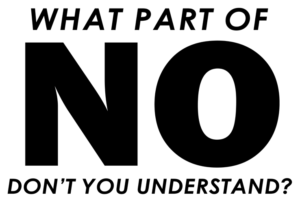Giving Thanks to Tech

Thanksgiving is upon us, and how often do we all truly stop and give thanks for all that we have, sometimes whether we know it or not. Here are a few examples, with tongue held firmly in cheek:
First, here was a time when you had to read a map or ask for directions when you were driving or walking somewhere you’d never been before and weren’t quite sure where you were going. Men notoriously hated to ask for directions, and would often get lost or go in circles, from what we hear. Now, all you need do is enter the destination into that map app on your phone, and no worries. In fact, Apple or Google, depending on your map of choice, often knows precisely where you’re heading, even before you’ve finished inputting the information. Wouldn’t you be lost without them?
Google knows better than you. The Wall Street Journal reported on How Google Interferes With Its Search Algorithms and Changes Your Results and let’s be honest: Google has been tracking you for so long now that the company no doubt knows you better than you know yourself. Or at least, knows what’s best for you, so may gently sway you in that direction… Say amen, somebody.

